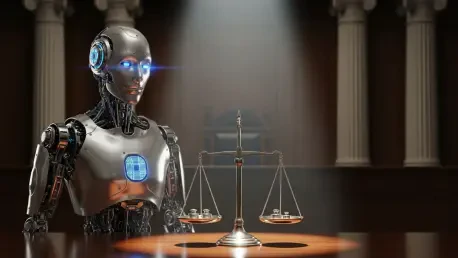
In an era where data breaches and cyber threats dominate headlines, the global cost of cybercrime is projected to reach staggering heights, with estimates suggesting damages could exceed $10.5 trillion annually in the coming years. This alarming statistic underscores a critical reality: as

Overview of AI in Employment Practices Imagine a bustling California tech startup sifting through thousands of resumes in mere minutes, thanks to cutting-edge artificial intelligence tools. This scenario, increasingly common across the state, underscores the transformative power of AI and automated

Imagine a world where data, the lifeblood of the digital economy, is no longer just a byproduct of technology but a legally recognized asset, akin to patents or trademarks, driving billions in economic value. In 2025, China is at the forefront of this transformation, redefining processed data as

Understanding the Landscape of Regulatory Compliance Imagine a financial institution grappling with a sudden regulatory update from multiple jurisdictions, each with conflicting requirements, while facing the threat of hefty fines for non-compliance. This scenario encapsulates the high-stakes

In a landscape where artificial intelligence (AI) is reshaping global economies, a staggering projection reveals that the U.S. AI market could reach a valuation of over $500 billion by 2027, driven by strategic governmental intervention. This immense growth potential underscores the critical role

Imagine a state where cutting-edge artificial intelligence (AI) transforms agriculture, education, and wildlife management, yet the very same technology sparks fears of job losses and eroded critical thinking. Florida stands at this crossroads, grappling with AI's dual nature as both a powerful